A true nature experience in Liwonde National Park in Malawi is offered by Kutchire Lodge, which opened in 2017. Kutchire means bush in Chichewa, Malawi’s main language, and says a lot about the style and experience of this game drive lodge south of Lake Malawi. The grounds of the eco-lodge are located directly on a river. The water and the abundance of greenery attract the animals. The elephants, which walk silently through the camp, are easily recognized by their feeding sounds. With a little luck they stop in front of your own accommodation and help themselves to trees and bushes.
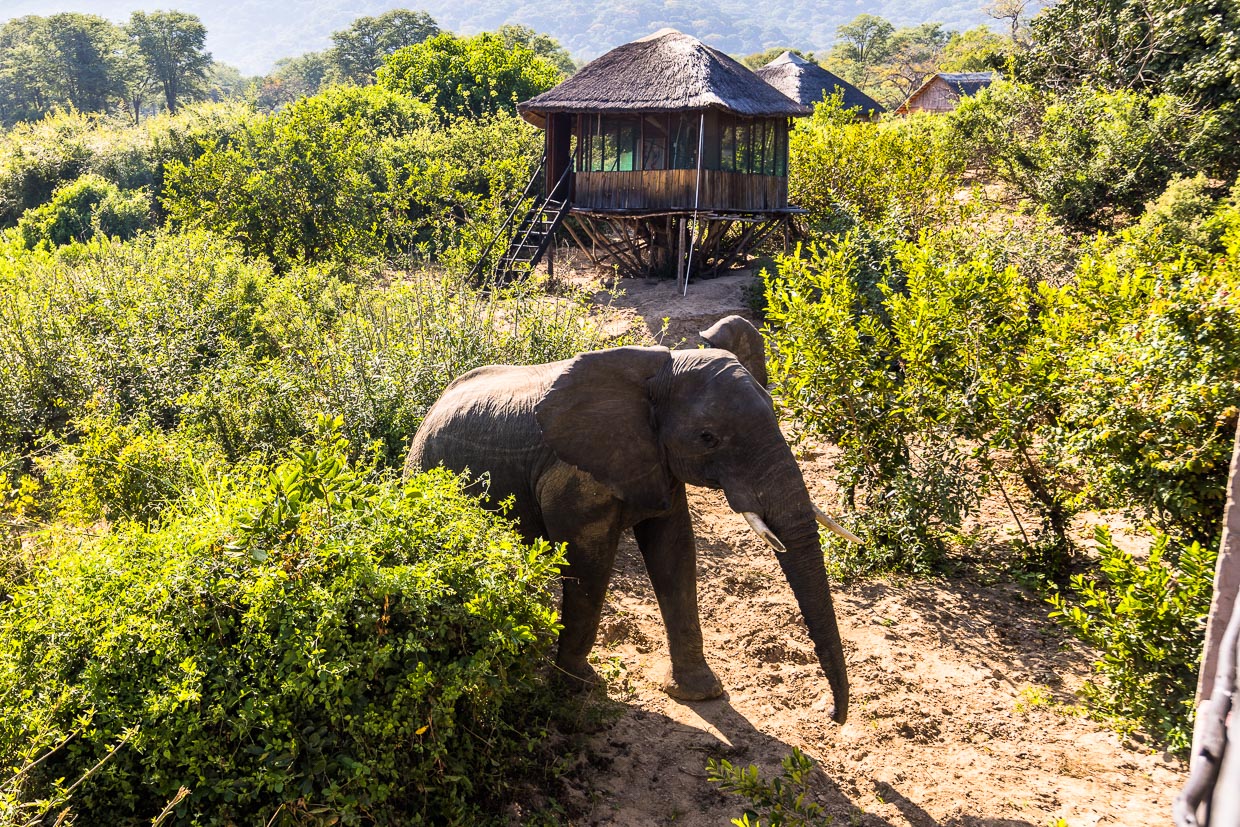
There are various types of accommodation, from stone chalets to campsites, from traditional roundhouses to adventurous treehouses. Kutchire Lodge is Malawian owned, which is also a special feature. Lonnie and Sam offer their guests a particularly authentic lodge experience with many Malawian details and a warm and communicative atmosphere. Guests interact on the communal terrace and around the evening campfire. Many come for the weekend from nearby Blantyre, including NGO workers, Malawian couples on their honeymoon, or seasoned Africa travelers who appreciate Malawi as a still-unknown destination. The owners, Lonnie and Sam, and lodge manager, Max, also drop by regularly for a chat. Thus, as a guest, you quickly feel included in the Kutchire Family.
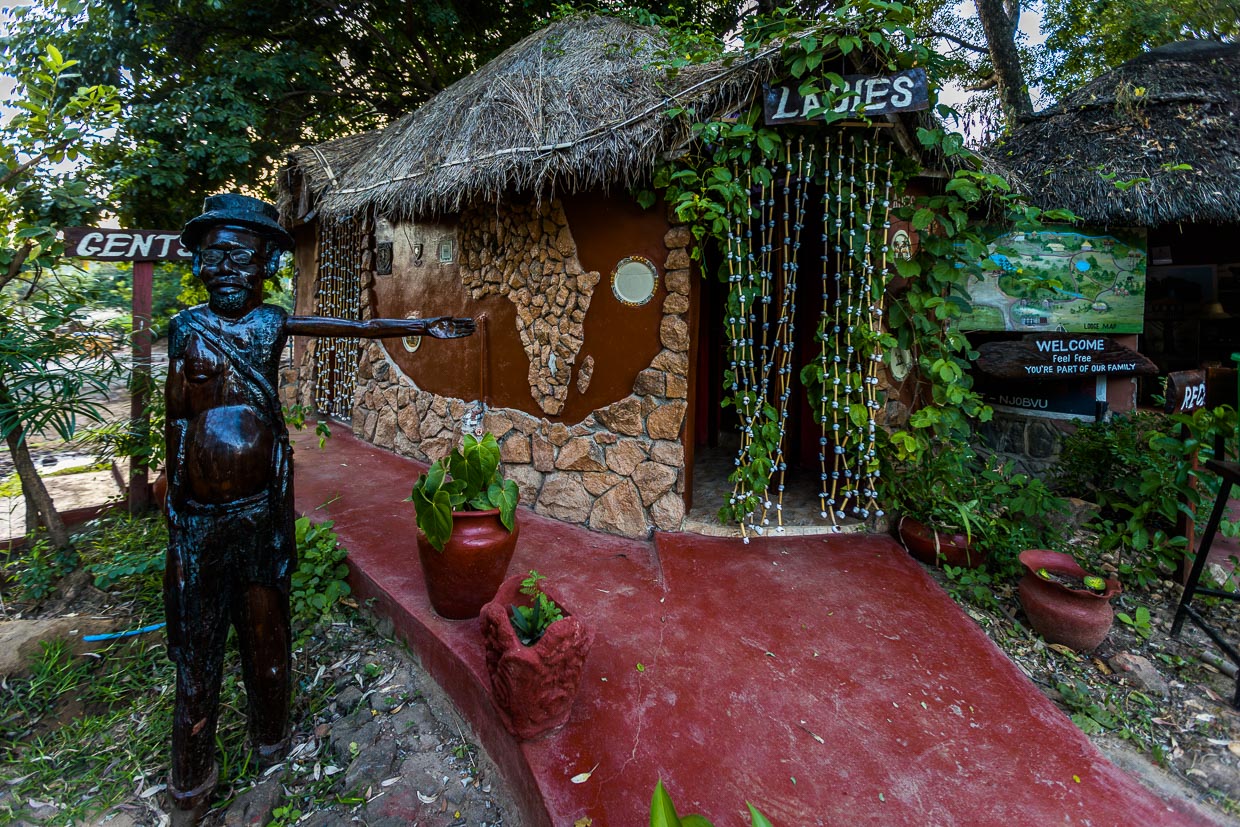
Breakfast with elephant
The central meeting point of Kutchire Lodge is the large terrace with bar and kitchen building. Here you can enjoy a cup of tea with toast at 6 a.m. before the morning drive into Liwonde National Park, a hot breakfast on your return, lunch from noon and dinner with a campfire in the evening. All meals are included in the overnight rate. The exposed location of the restaurant terrace on the river ensures animal encounters even before you enter the park. More than 500 elephants live in Liwonde National Park. Their migration routes on their constant search for food lead the elephants also through the Kutchire Lodge. They like to use the path network of the lodge. So already at breakfast elephants appear at the river bank, monkeys jump through the treetops and sometimes you can see the small ears of a hippo wiggling in the water.
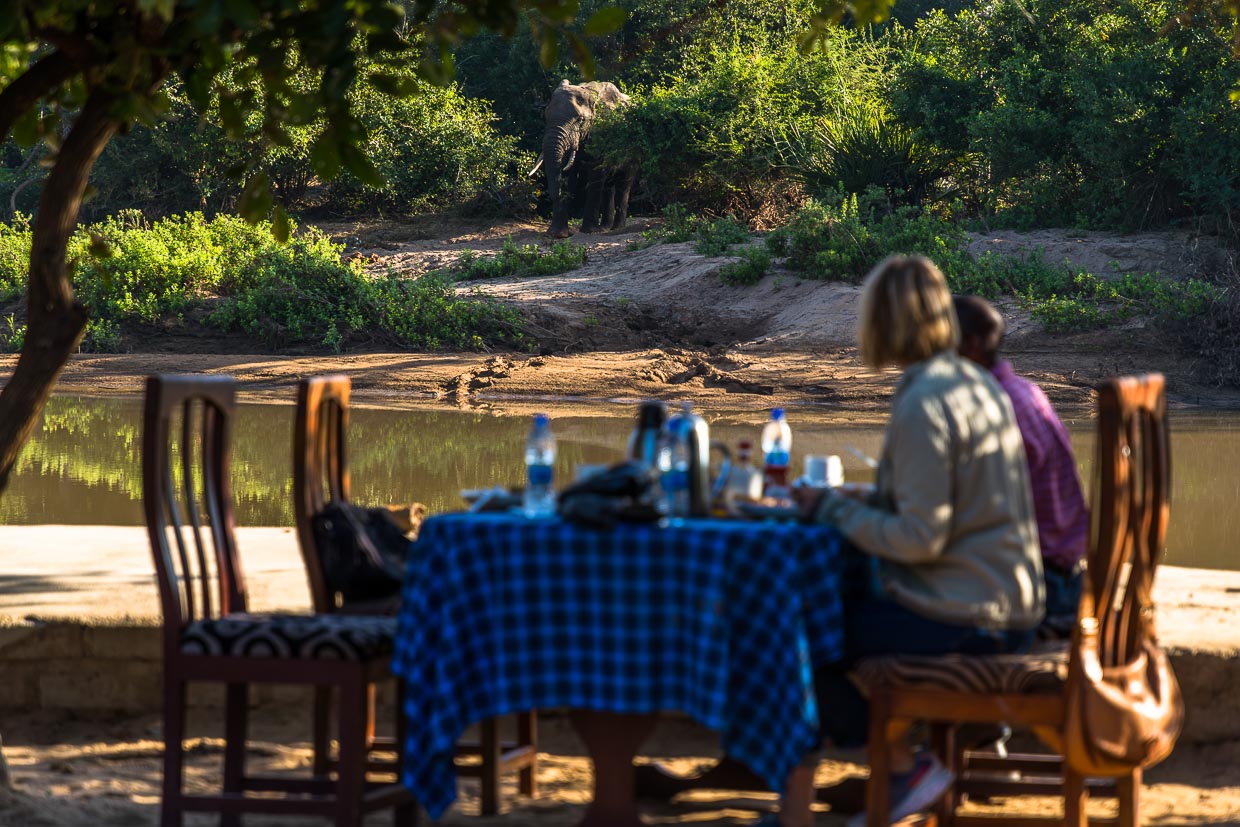
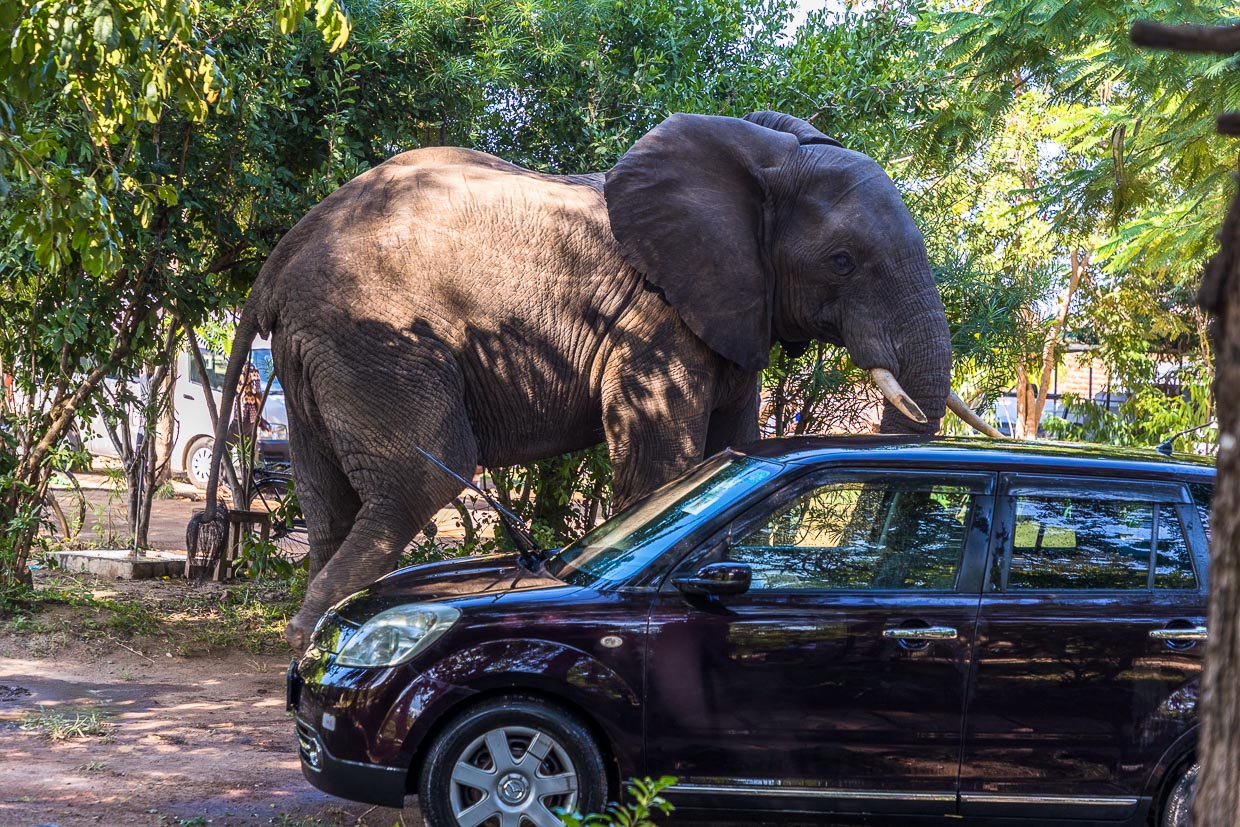
Tree house with a view
Staying at Kutchire Lodge is a real nature experience. How close you want to get to the animals and their sounds at night is up to you. There is a wide variety of accommodation from stone chalet, traditional roundhouse or wooden hut to a camping area on stilts or an airy tree house. All buildings are generously spread over the grounds. Narrow sandy paths through the bush sooner or later lead everyone to the reception and restaurant terrace. At night, you are on your own. Guides accompany you after dark with their flashlights until you reach your accommodation. Afterwards, only the mosquito nets above the bed and on the windows separate you from the nocturnal animals of the jungle.
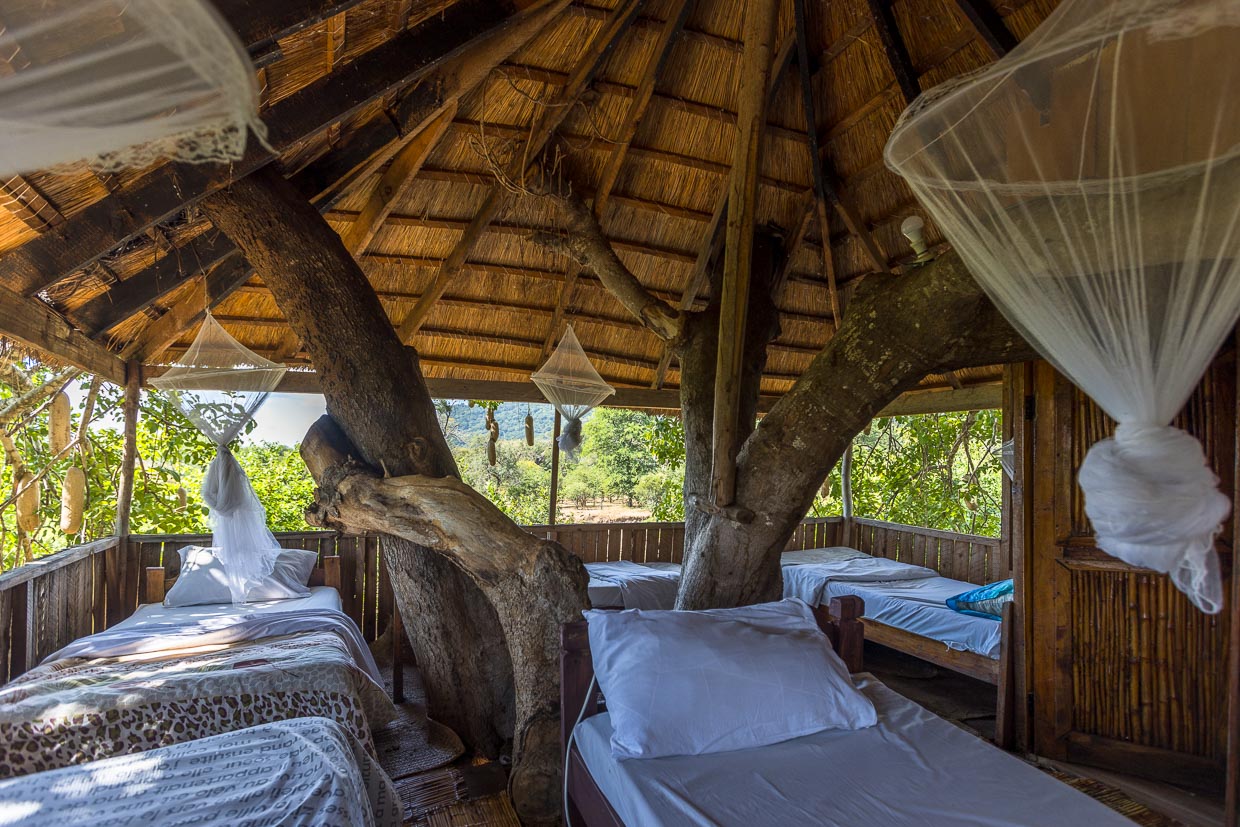
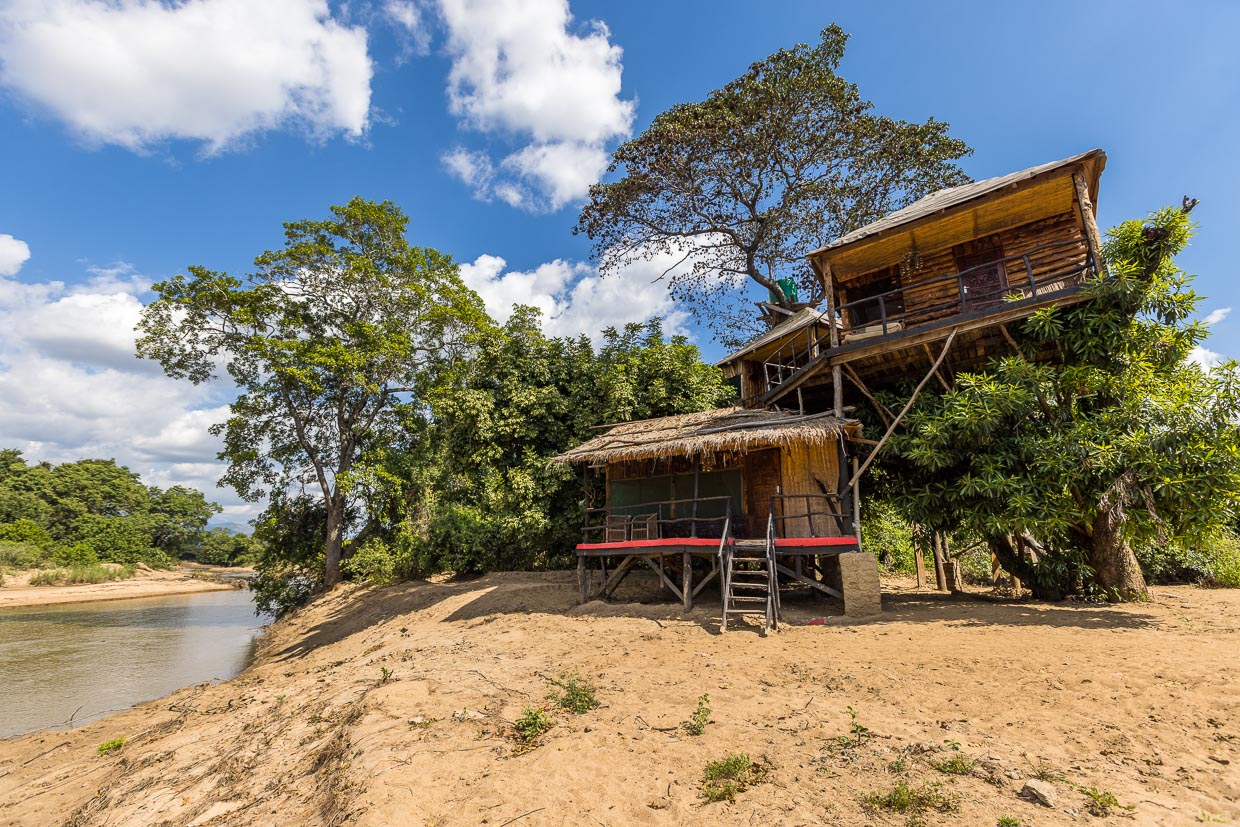
The tree houses offer a great view over the park, the beds are arranged around the thick branches of a tree whose huge sausage fruits dangle like decoration in front of the windows. In the tree houses there are no window nets, but the direct view of the landscape and a polyphonic concert of the bush inhabitants included. With a bit of luck, the next morning an elephant will be standing by the hut, nibbling on the leaves of the trees. If you want to get closer to the big and small animals of the jungle, you are in good hands at Kutchire Lodge. Those who swear by the hum of air-conditioning and five-star standards instead of a balmy night breeze and the grunts of hippos may not feel as comfortable here. For everyone else, this is a chance to have a real nature experience. In the process, you may have to share the bathroom with a frog or a couple of geckos. But honestly, a tree house with a bathroom is luxury enough!
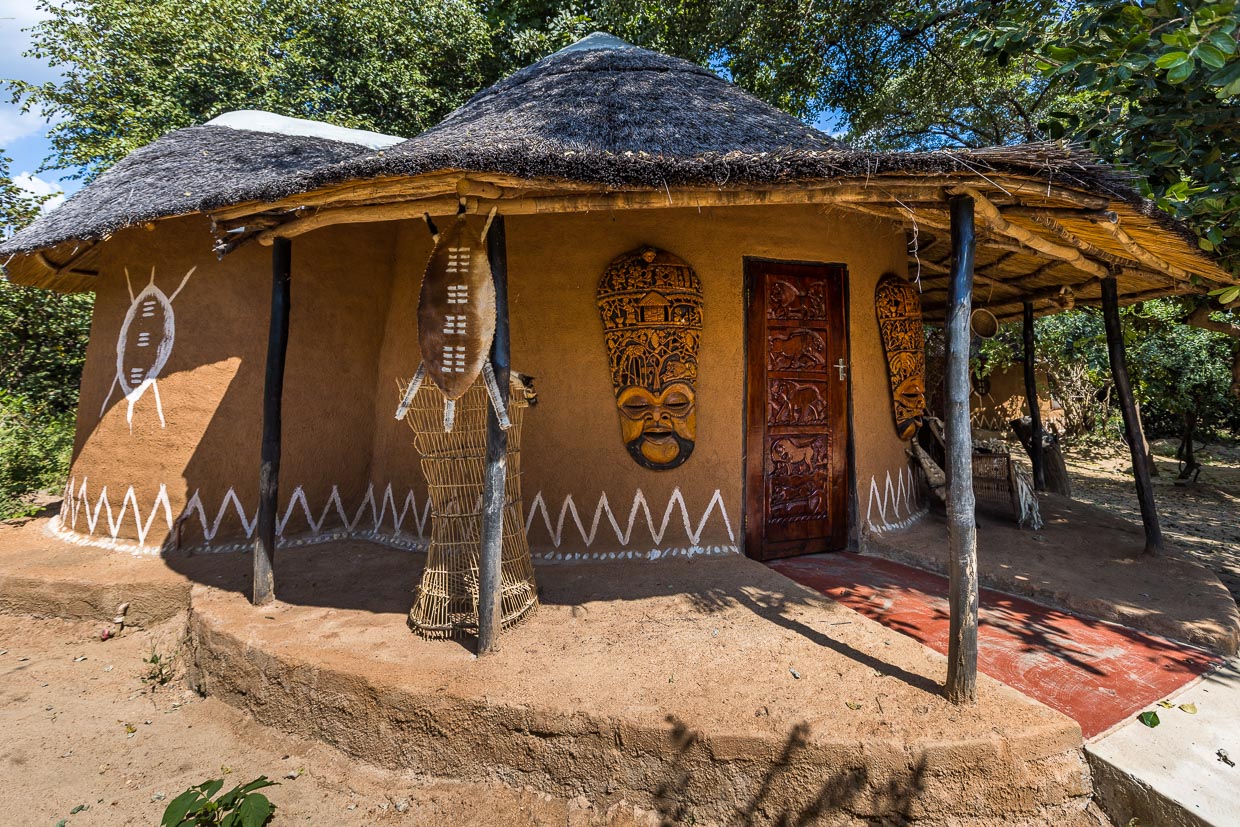
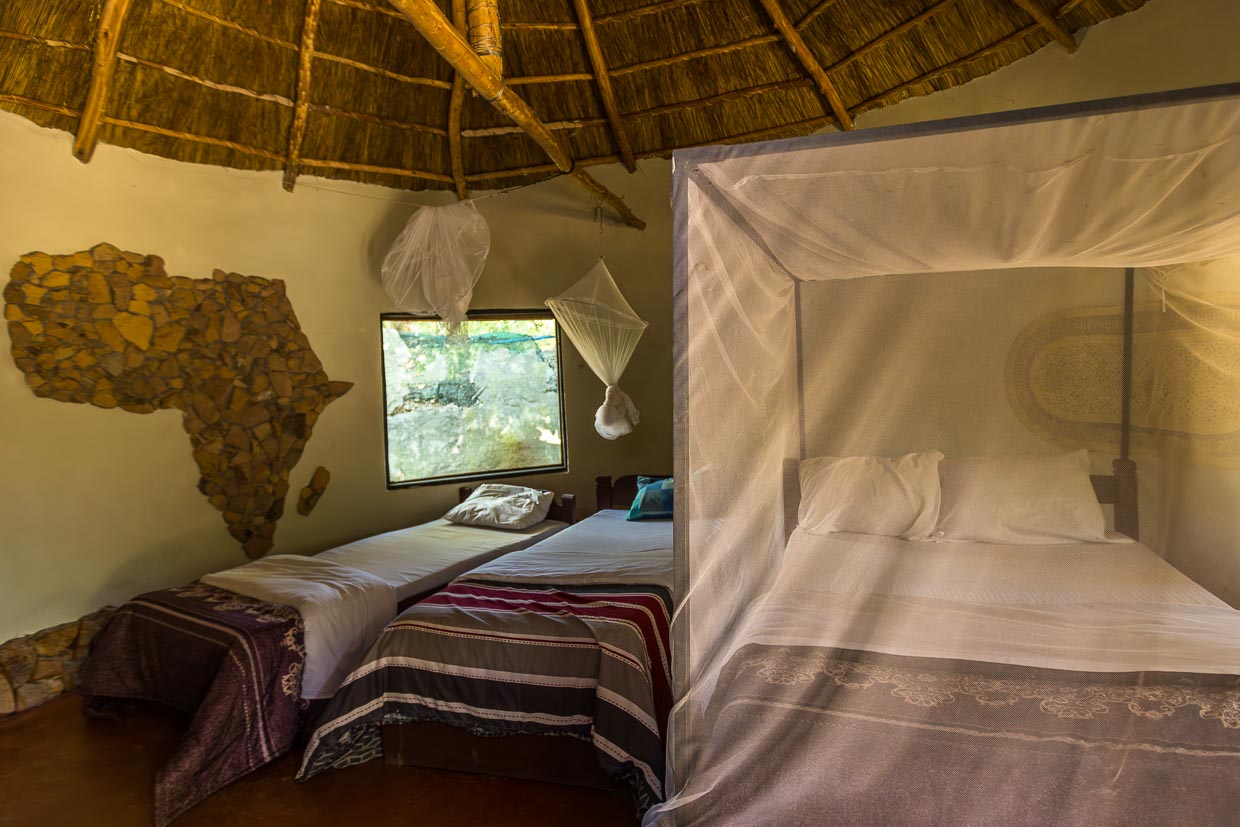
A miracle rarely comes alone
The story of Kutchire Lodge sounds like a modern fairy tale. It all started in 2017 with Lonnie and Sam Mchozana’s plan to venture into something new. Sam is a phamacologist with a strong soft spot for the nature of his homeland. The Blantyre-based couple gets the chance to set up a safari lodge on the edge of Liwonde National Park. However, their children are not very enthusiastic about their parents’ trip to the country. The parents, however, continue their plan undeterred and honor the children’s protest by naming the lodge after what the children don’t want to know about, the bush, or Kutchire in Malawian. The two start small with a guesthouse and a converted safari vehicle, imported second-hand from South Africa.
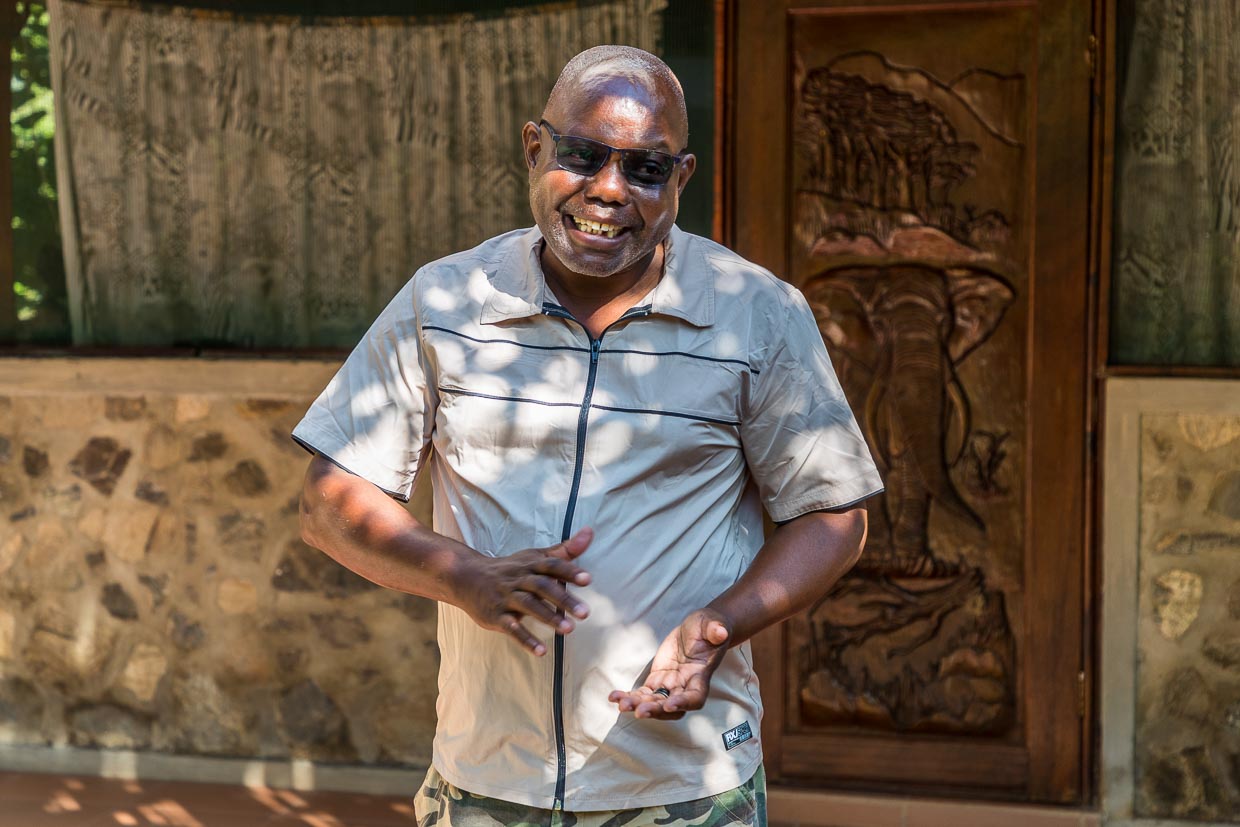
In those early days as a lodge operator, Sam recounts, a bus with 20 Americans from Pittsburgh stops at the entrance one day. The travelers ask for an overnight stay, it is already almost dark and they don’t want to go any further. With pragmatism and Malawian improvisational talent, Sam offers the guests the only available house as a bed camp, with bush toilet and a meal at the campfire. Sam tells the guests about his plans. It becomes a long night with intensive conversations. The next morning, the guests ask about the price of the night. Sam is unsure what he can charge for this spartan mass accommodation and suggests $10 per person. The group then asks for time to think it over and retreats for consultation. The Americans, impressed with Sam and Lonnie’s plans for the future, to Sam’s great surprise, put down not $10 but $1,000 per person for the night in the bed camp. This unexpected and unconditional investment by the Pittsburg tour group moves Kutchire Lodge forward decisively. Sam, who can hardly believe his luck, immediately invests in building materials. In no time at all, more houses are built. Among them are the fantastic tree houses.
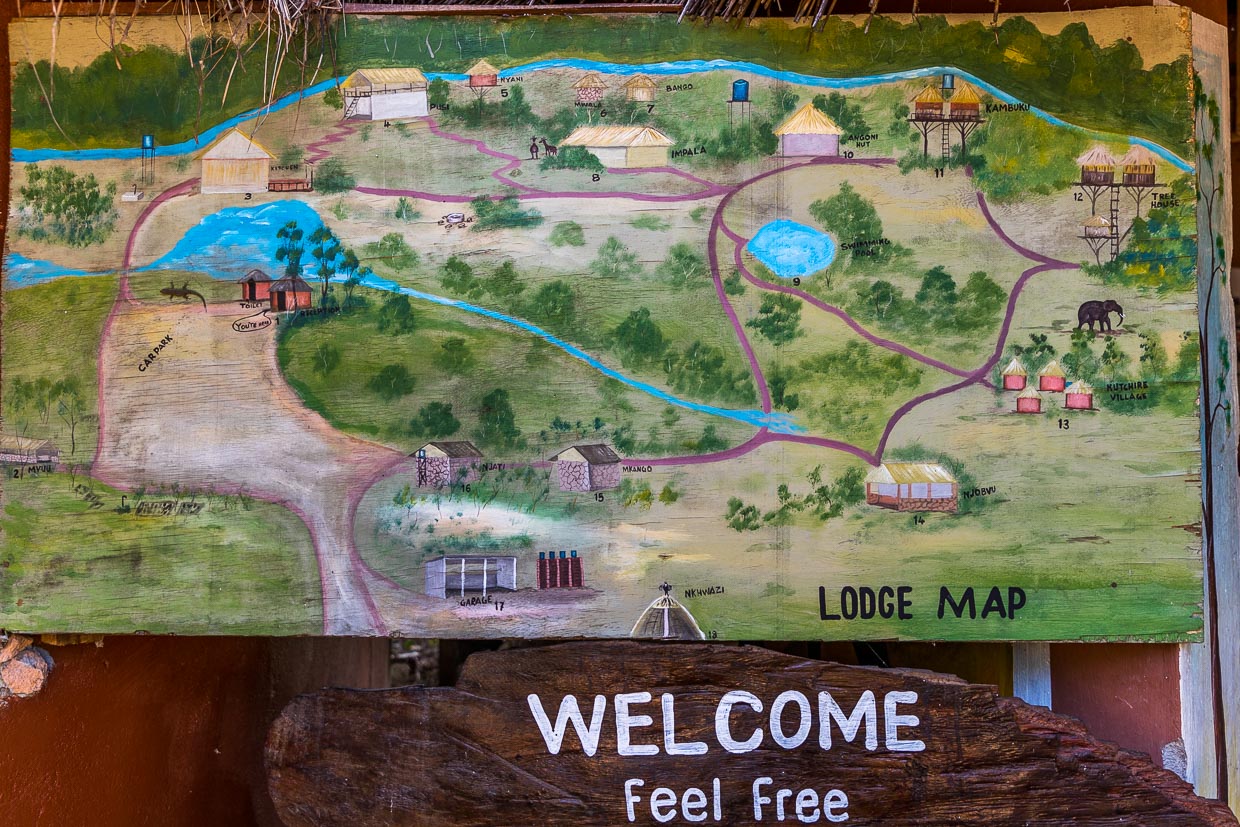
Contact with the American overnight guests from Pittsburgh has never been broken. Lonnie and Sam have already made a return visit to the U.S., and the enthusiastic guests of yesteryear have seen the progress of Kutchire Lodge several times. In the meantime, there is also a swimming pool on the grounds. When temperatures reach 40 degrees Celsius in the African summer, guests can cool off here. Elephants, however, do not fit through the entrance to the pool.
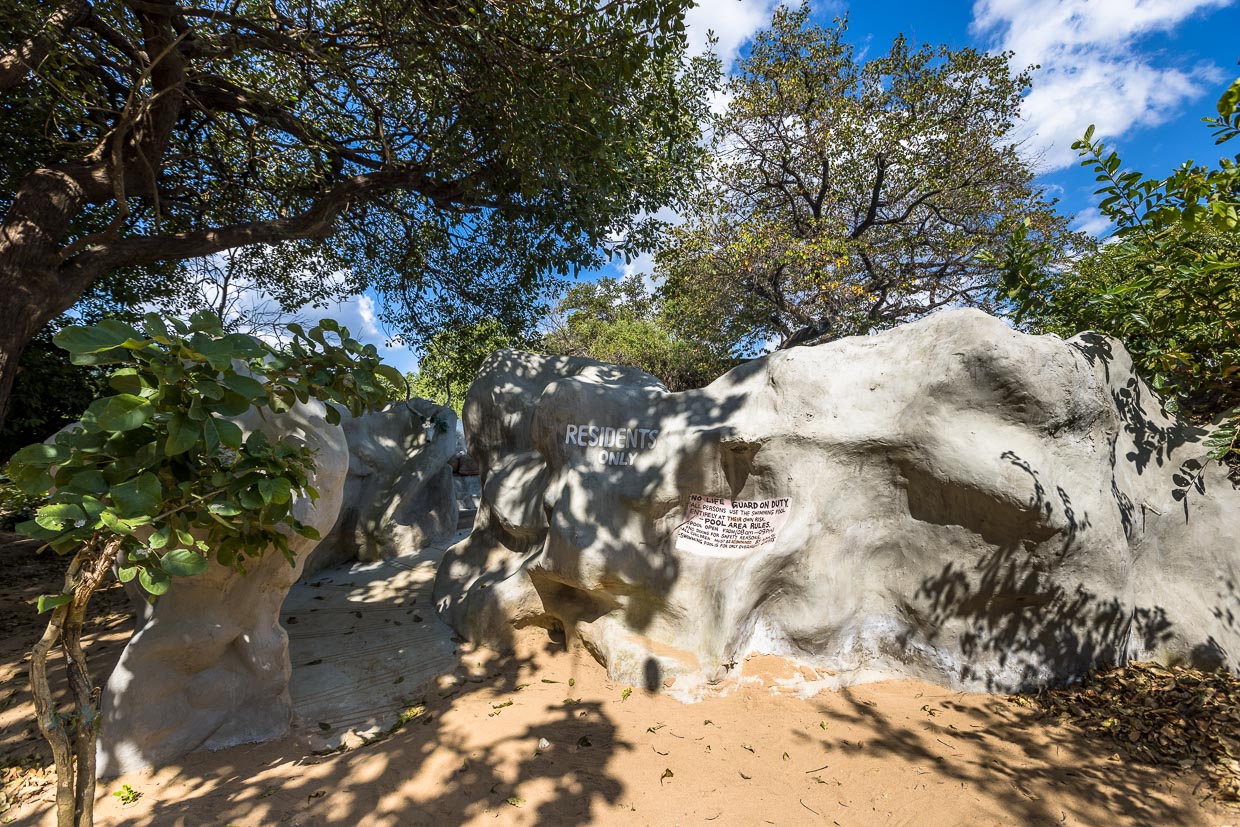
Already in 2019, a second miracle occurred, reports Sam. This time in the person of Prince Harry and an entourage of 60 British soldiers. For several months, an elaborate anti-poaching project was to be carried out in Liwonde National Park. In addition, the Duke of Sussex accompanied the transfer of more than 200 elephants from the Liwonde National Park to the Nkhotakota Reserve in Malawi. Kutchire Lodge was requested to cater for the soldiers. A lucrative assignment that brought revenue and reputation, Sam said, but unfortunately was abruptly thwarted by the Corona pandemic.
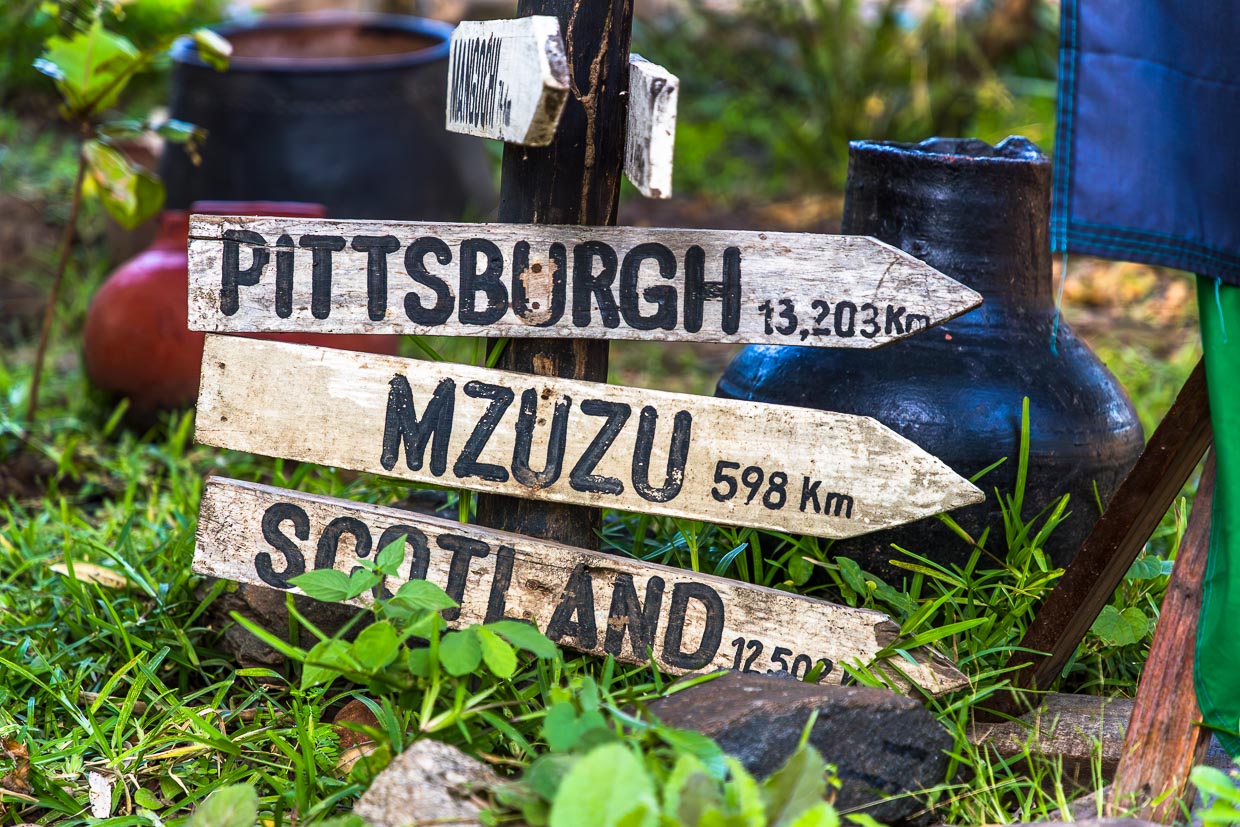
Neighborhood help – Village Walk
Just outside the gates of Kutchire Lodge is the small village of Kaudzu. For generations, the people here have made a living from fishing in the Shire River and hunting. On a very modest scale, vegetables and corn are also grown. Mostly only for subsistence. Although a safari tour or a boat trip on the Shire River are among the mandatory highlights for every visitor to the lodge, lodge manager Max also offers guests a visit to the village. Because where tourism projects influence the everyday life of the people, the much praised win-win situations do not automatically occur. When fishing and hunting grounds become protected zones, not only does a source of income dry up for entire families, but the entire food supply is endangered. With often dramatic consequences and hard strokes of fate for the families.
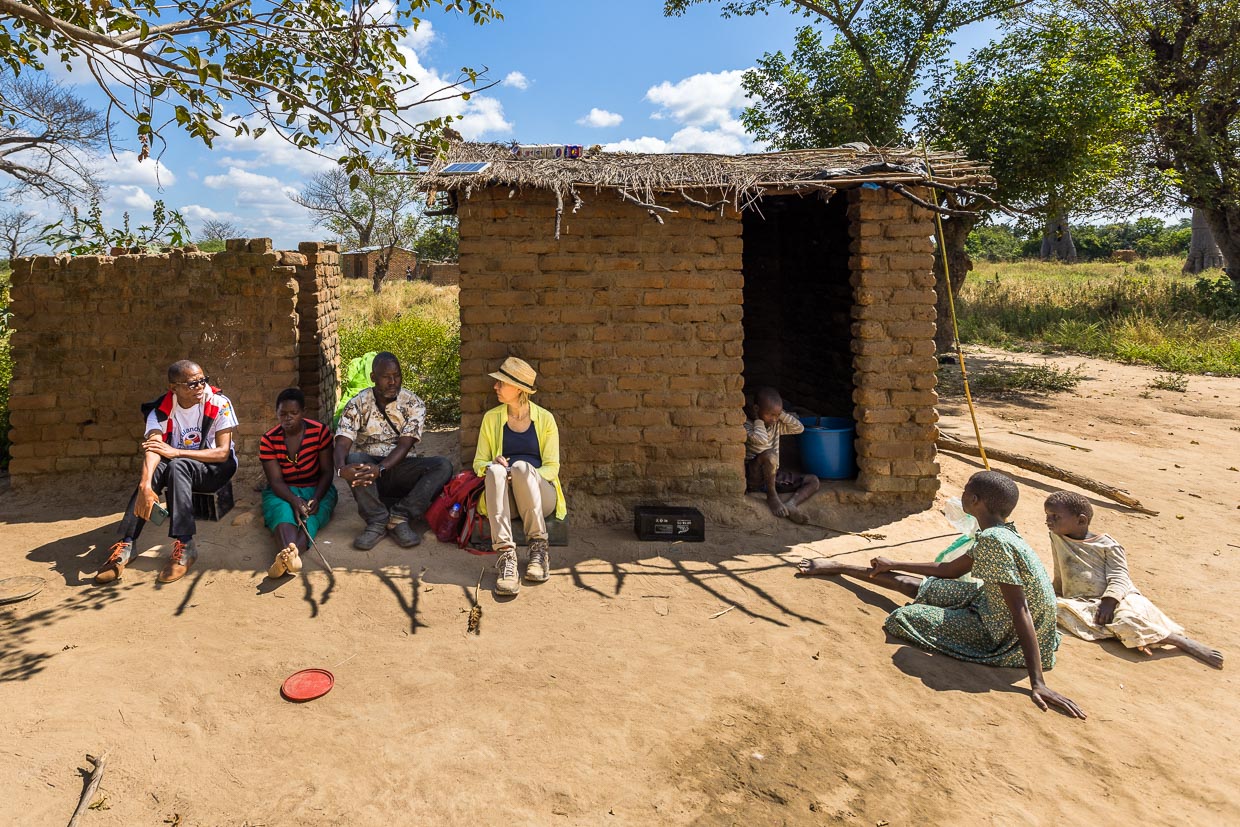
During the Village Walk, we visit Mrs. Chikopa, among others. She is a widow and has six children. Her husband was a fisherman, one of many on the banks of the Shire who, since the establishment of the protected zone, went out fishing at night to escape the supervision of the rangers. Five years ago, he never returned. A crocodile had eaten him.
The insight of the Kutchire Lodge: All villagers must be permanently involved so that the acceptance for animal and landscape protection grows. This applies to the village of Kaudzu as well as to the other villages on the edge of all national parks and game reserves. Thus, former poachers, with their skills in tracking, are retrained as rangers. Kutchire Lodge has become an employer of seasonal workers. Women find work in the kitchen or run a souvenir stand. In addition, the Rotary Club, of which Sam and Lonnie are members, has sponsored the village. Houses damaged by cyclones or heavy rains are being rebuilt. Roofs equipped with solar energy and scholarships given to children. 10 percent of the income from overnight stays at Kutchire Lodge goes to development projects for the village.
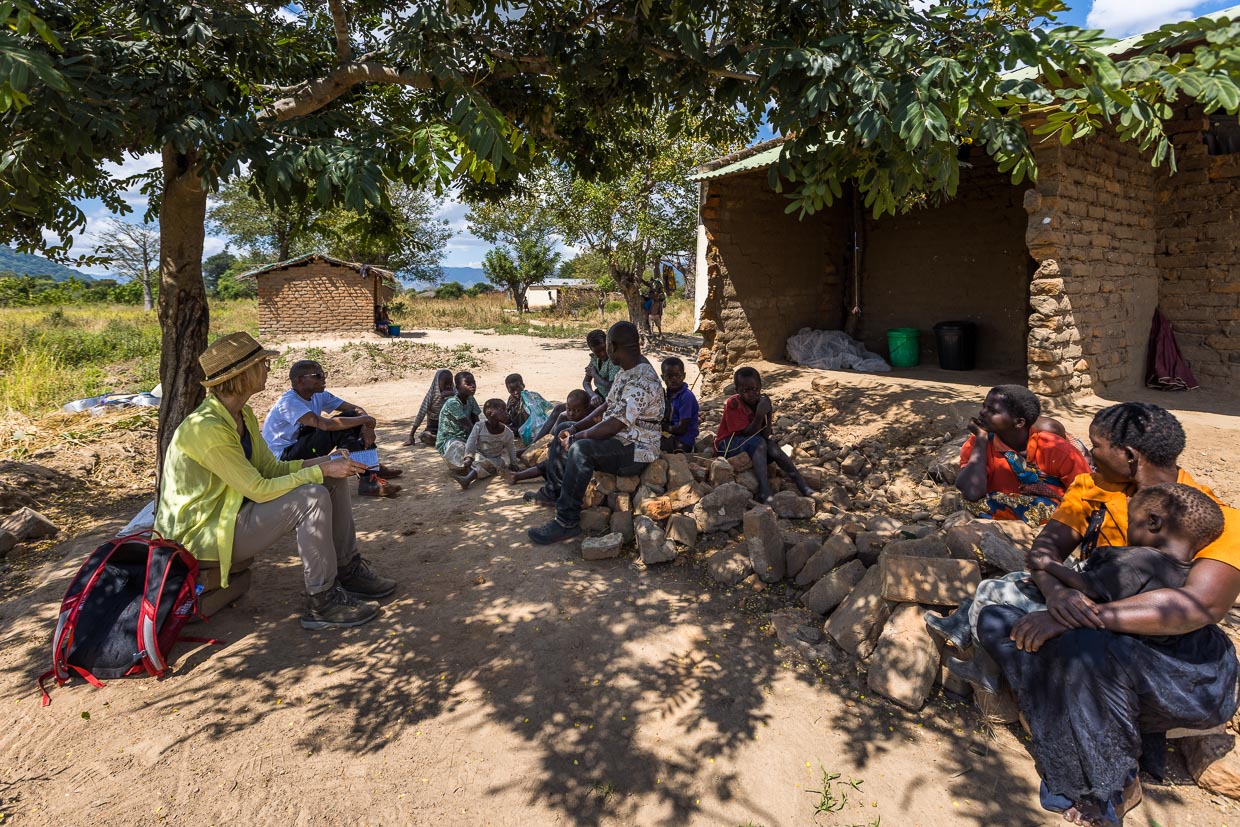
Game drive and boat tour
Kutchire Lodge offers daily drives into Liwonde National Park. The park is part of the larger Liwonde-Mangochi complex managed by African Parks in partnership with the Department of National Parks and Wildlife Malawi. Liwonde is home to Malawi’s largest elephant, black rhino, cheetah and waterbuck populations. This large herbivore population has enabled the park to supply numerous animals to other protected areas in Malawi to restore populations and improve genetic diversity there as well.
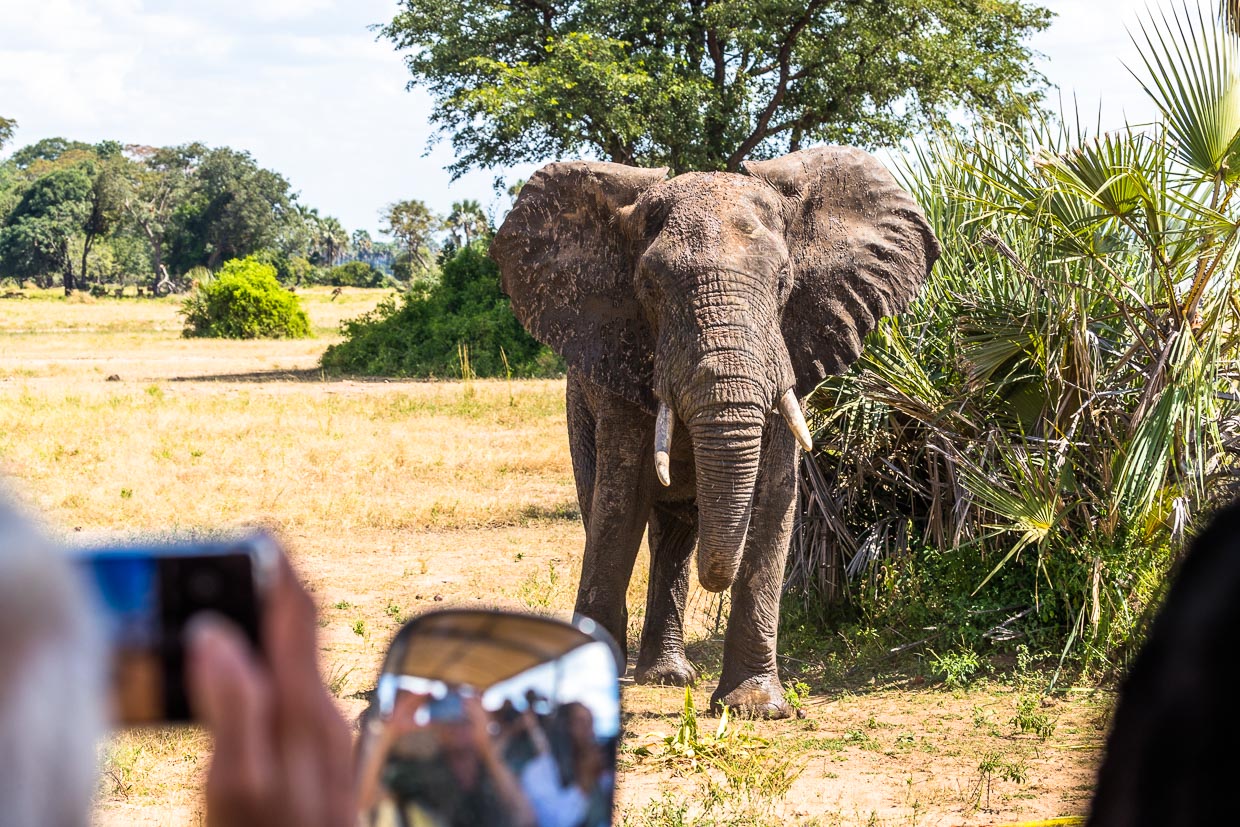
Due to its location on Malawi’s most important river, the Shire River, the habitats vary from extensive floodplains to vast mopane forests. Liwonde Park is a Malawian success story and is now the park with the most predator sightings in Malawi. Kutchire Lodge, with its perfect location in the park and very close to the Shire River, also offers boat trips that give you a view of the animals from the water.
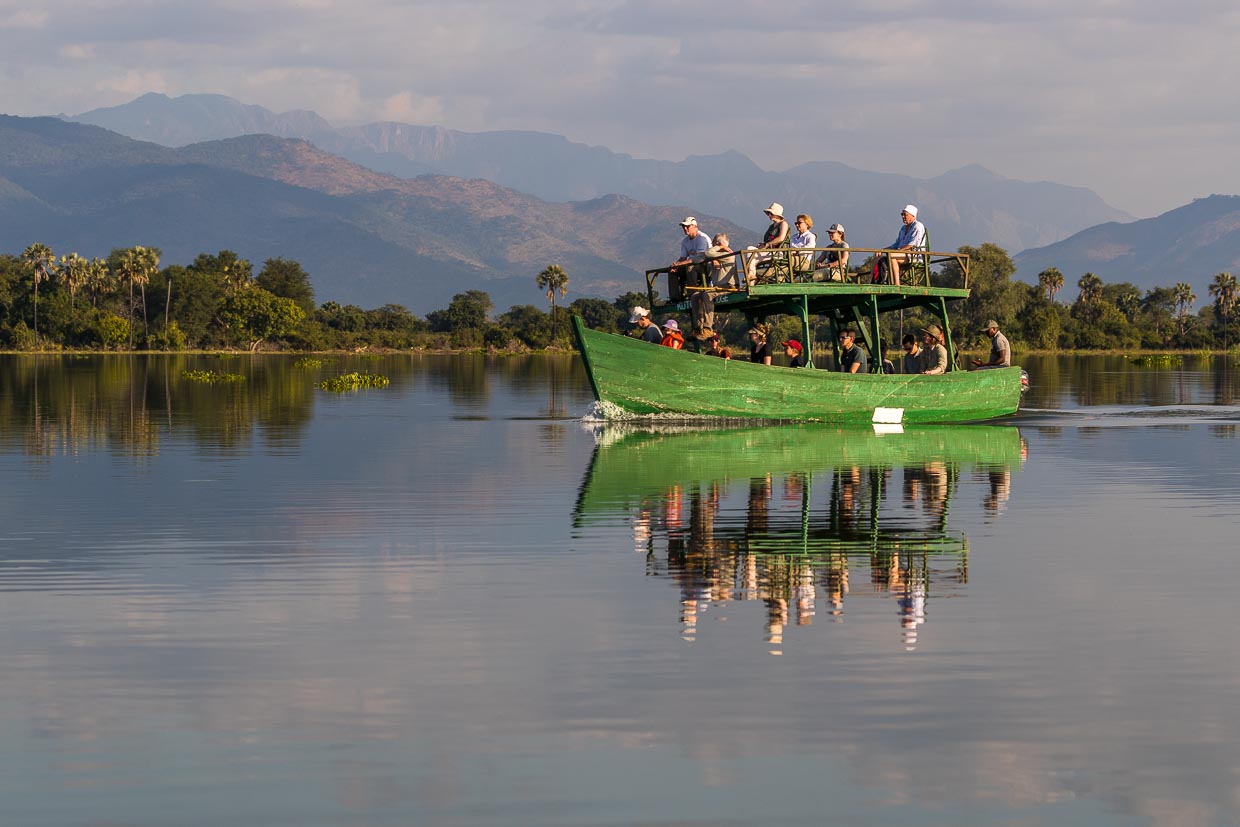
Malawi as a travel destination
The safari tours with the guides of Kutchire Lodge are reported in detail in another report. On the website of Kutchire Lodge at Liwonde Nations Park there is more information. An overview of all the stories on Malawi can be found on the country page Malawi. The landlocked country in Southeast Africa, which also calls itself the Warm Heart of Africa, is still considered an insider tip for Africa travelers. In regional comparison Malawi is a safe and peaceful country. The country’s landscape is dominated by Lake Malawi, the tenth largest lake in the world. In the total of five national parks, successful wildlife management has been practiced for several years and biodiversity has increased enormously. Nevertheless, the population of Malawi suffers from poverty. A controlled growth of tourism creates income opportunities also in rural areas and improves the livelihood of families. More information about tourism in Malawi.
The research trip was supported in Malawi by the Ministry of Tourism

